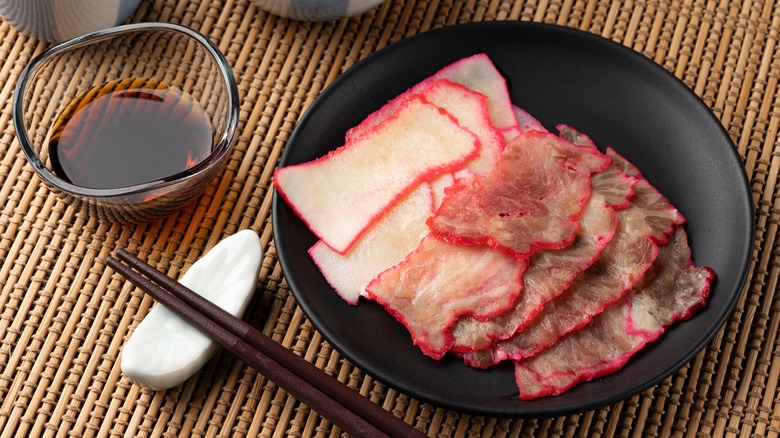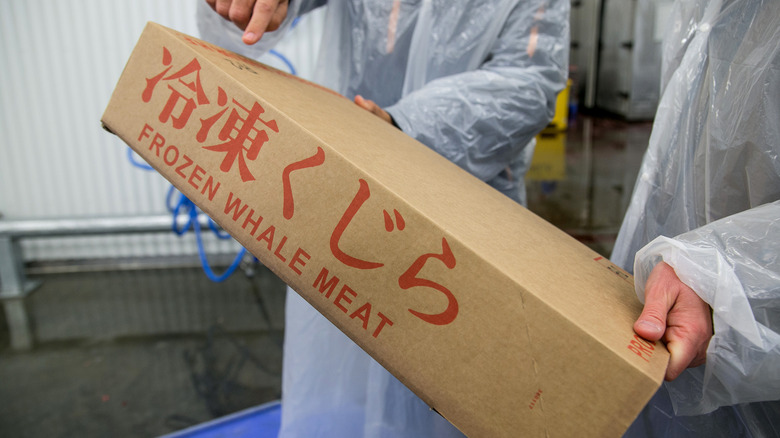Why Japan's Whale Meat Vending Machines Are So Controversial
Whaling is nothing new for human civilization. For thousands of years, cultures across the world have utilized these giants of the sea as resources for both protein from the meal and oil from the blubber. Whaling remains deeply important to the cultural identities of Norway, Iceland, and Japan. These three countries happen to be the only ones in the world that have not outlawed commercial whaling. And whaling is only allowed in the U.S. by the native Inuit people of Alaska, who are permitted to hunt bowhead and gray whales for food and tribal rituals (via National Geographic).
In spite of enormous international pressure, Japan's insistence on maintaining its commercial whaling rights has stirred up a fair amount of controversy. Most recently, the development of vending machines selling whale meat has renewed cause for concern from anti-whaling advocates. According to CNN, Japanese whaling firm Kyodo Senpaku set up a trio of vending machines in Yokohama, offering whale sashimi, whale bacon, and whale steaks. The goal of the company is to revive the sale of whale meat. The product is not available in major Japanese grocery stores over, what Senpaku claims, fears of harassment by anti-whaling groups. The company is seeking to set up 100 more vending machines across Tokyo over the next few years, but time will tell if the company succeeds.
A cultural matter
The controversy over the vending machines is twofold — the selling of whale meat and the act of whaling itself. According to Asia News Network, Japanese consumption of whales peaked in 1962 at 233 metric tons and declined precipitously, as in 2021, only one metric ton was consumed. These statistics have caused the anti-whaling camp to ask: why bother selling if it's already on its way out?
For its part, Kyodo Senpaku states that the firm only promotes whale meat consumption to maintain an important part of Japan's dietary culture. According to CNN, internal research by Senpaku indicates that there are many in Japan who want to eat whale meat but can't, owing to the scarcity of the product. The vending machines, therefore, provide an option for the customers seeking it out, Senpaku maintains.
Japan has whaled for thousands of years and will likely continue to do so despite attempts by the International Whaling Commission (IWC) to make commercial whaling illegal worldwide. According to the Australian Institute of International Affairs, Japan left this commission in 2019. The IWC cites overfishing and species endangerment as the leading factors behind their policy-making, which a majority of global leaders approve. However, the Japanese government has held firm regarding the cultural heritage of eating whale, meaning that no official bodies are prepared to impede Kyodo Senpaku's plans for future vending machine installation.

